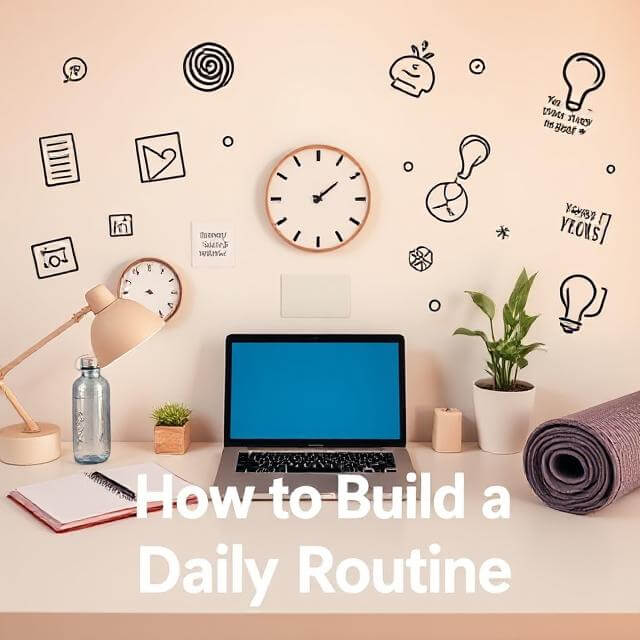🌟 Developing Emotional Intelligence: Unlocking the Power Within
By SufficientNotes.com – Your Partner in Self-Growth
🧠 What is Emotional Intelligence (EQ)?
Emotional Intelligence (EQ) means understanding, managing, and positively responding to your own emotions and those of others. This one skill helps you in every area of life — whether it’s personal relationships or career growth.
Unlike IQ, which is linked to logical thinking, EQ is connected to:
- Self-awareness
- Self-regulation
- Empathy
- Motivation
- Social skills
People with high emotional intelligence are generally more successful, peaceful, and adaptable — especially in leadership and teamwork.
🎯 Why is Emotional Intelligence Important in Life & Career?
Whether you’re a student preparing for NEET, JEE, or any competitive exam, or a working professional, emotional intelligence is your hidden superpower. It helps you stand out not just on paper but in real-life situations.
🔑 Benefits of High EQ:
- Easier conflict resolution
- Better stress management
- Improved communication & trust
- Enhanced leadership & decision-making
- Stronger relationships & teamwork
📚 5 Key Components of Emotional Intelligence
1. Self-Awareness
Recognizing your emotions and understanding how they affect you.
🧩 Example: Realizing why you are angry at a particular moment.
2. Self-Regulation
Managing your emotions without reacting impulsively.
🚦 Example: Staying calm during an argument instead of shouting.
3. Motivation
Being driven from within — without always needing external rewards.
4. Empathy
Understanding what others are feeling and showing genuine concern.
🤝 Example: Noticing someone is sad and trying to understand their situation.
5. Social Skills
Building healthy relationships and working well in teams or as a leader.
🛠️ How to Develop Emotional Intelligence – Step-by-Step Guide
Let’s get practical! Here’s a step-by-step roadmap to help you develop emotional intelligence in real life:
🔍 Step 1: Daily Self-Reflection
Spend just 5 minutes every night asking:
- What did I feel today?
- Why did I feel it?
- How did I react?
📝 Tip: Start a “Feelings Journal” — write down daily emotional experiences.
😌 Step 2: Practice Mindful Breathing
Emotional control begins with breath control.
- Inhale deeply for 4 seconds
- Hold for 4 seconds
- Exhale slowly for 4 seconds
Practice this for 5–10 minutes daily.
📢 Step 3: Improve Active Listening
Next time someone talks:
- Don’t interrupt
- Just listen
- Observe body language
🎧 Pro Tip: “Listen to understand, not to reply.”

🧠 Step 4: Label Your Emotions
Give your feelings a name like:
“I’m feeling anxious.”
“I’m sad, and that’s okay.”
This builds your emotional vocabulary and makes emotions easier to manage.
🧘 Step 5: Pause Before Reacting
In emotional situations, take a 2-second pause before reacting.
🚦 It gives your brain time to respond wisely, not impulsively.
❤️ Step 6: Develop Empathy by Reading & Volunteering
To better understand others’ emotions:
- Read emotional stories (books, blogs)
- Volunteer for social work
This grows compassion and real-world empathy.
🧩 Step 7: Practice Giving & Receiving Feedback
Learn how to accept criticism calmly and offer feedback without hurting others. This is a powerful EQ trait.
👨💼 Emotional Intelligence at the Workplace
In career planning and professional success, EQ plays a key role:
💼 EQ Helps You:
- Be a confident, empathetic leader
- Handle stress & pressure like a pro
- Build strong team bonds
- Resolve conflicts peacefully
Want more career-ready insights? Visit: sufficientnotes.com
👪 Emotional Intelligence in Personal Life
EQ is not just for office hours — it shapes your relationships at home too.
💖 Personal Benefits:
- Be a better listener and partner
- Avoid misunderstandings
- Strengthen emotional trust
- Handle arguments maturely
📈 Emotional Intelligence vs Intelligence Quotient (EQ vs IQ)
| Feature | IQ (Intelligence Quotient) | EQ (Emotional Intelligence) |
|---|---|---|
| Nature | Logical & Cognitive | Emotional & Relational |
| Can it improve? | Limited | Yes, trainable |
| Required for exams | Mostly yes | Sometimes |
| Needed for life success | Partially | Absolutely ✅ |
📥 Final Words: Start Building Your EQ Today
Areeb bhai, emotional intelligence is not an overnight transformation — it’s a journey that blossoms through daily efforts. If you really want to upgrade your personality and lead a powerful, successful life — start today with small, consistent steps.
✨ Quick Action Plan:
- Start journaling your emotions
- Practice 10 minutes of mindfulness daily
- Speak kindly with family & friends
- Build your emotional vocabulary
Need more guidance and personality-building tips?
👉 Visit now: https://sufficientnotes.com
Top Products Which Highly Recommended :-
Emotional Intelligence: Why It Can Matter More Than IQ by Daniel Goleman
The EQ Edge: Emotional Intelligence and Your Success by Steven J. Stein & Howard E. Book





